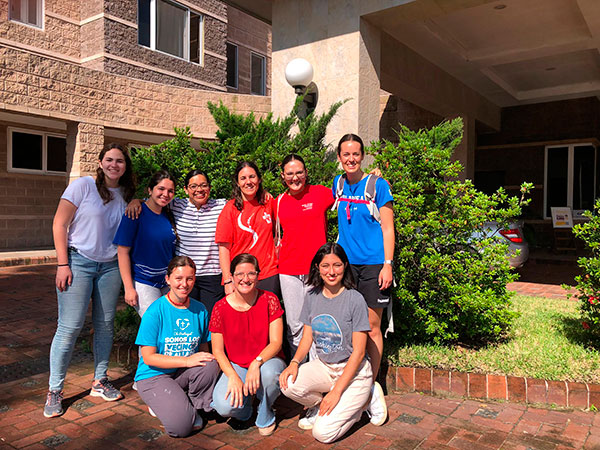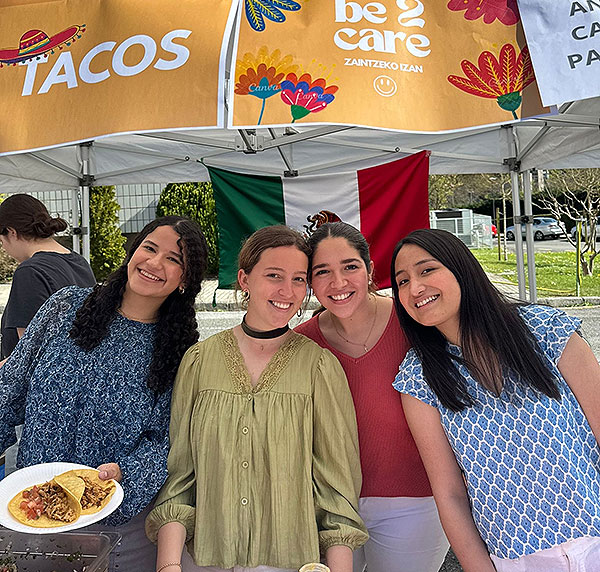Actions of volunteer activities and international cooperation, in which students put on internship the knowledge acquired on class, complete their training beyond the classroom.
Since its beginnings, the University of Navarra has had an explicit purpose of service. With the desire to contribute to the improvement of society, teaching and research seek to understand and respond to the problems and needs of today's world. For this reason, the walls of a classroom or a laboratory sometimes remain small; and actions of volunteer activities and international cooperation complete the training of our students. The students put on internship the knowledge acquired in class in concrete initiatives of service to the most needy; and at the same time, they continue learning through enriching experiences that put them in contact with diverse cultures and realities.
__________________________________________________________________
Hope for the women of Congo
To put on internship what they have learned in the classroom, helping those in need. That is what has led one more year a group of students from the School of Medicine to embark on the project Elikia. Coordinated by Dr. Luis Chiva, director of the department of Gynecology and Obstetrics of the Clínica Universidad de NavarraElikia ('hope' in Lingala) works on the prevention of cervical cancer in Congolese women.
María Requena, a native of Pamplona, who has just finished her 4th year of Medicine, was one of the students who participated this year in project. "In the Congo, people live very day to day. Women only go to enquiry when they feel very ill," she explains. "In addition to treating patients, we have tried to train women to be more concerned about prevention. In this way, we avoided the advanced tumors that we could see in the early days."
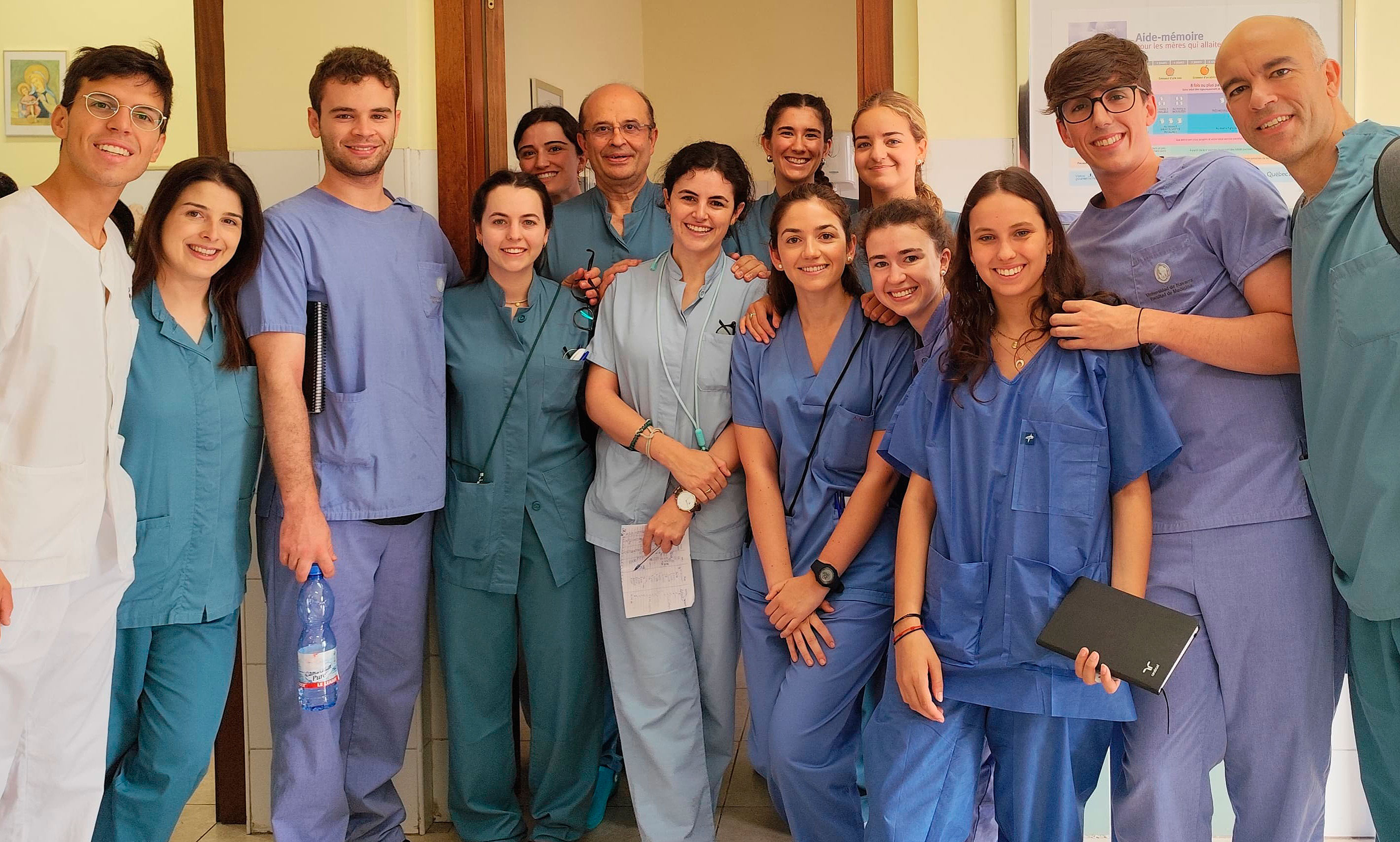
The medical team that Maria was part of left Madrid carrying more than 600 kg of medical material. Upon arrival in Kinshasa, the six professionals and eight students who made up the expedition settled in Mont Ngafula, one of the most disadvantaged neighborhoods in the area, where the Monkole Hospital is located. Between June 30 and July 13, the team worked to improve the cervical cancer screening system that has been implemented on previous trips, which locates patients with the Human Papilloma Virus (HPV) and eradicates it in its precancerous form before it is too late. This year, the project has introduced the test PCR, capable of giving a reliable diagnosis in less than an hour.
"The patients came to enquiry; we did a visual inspection and different tests that we sent to laboratory , which we put there to provide them with the results the same day. Many patients came from far away and others were not used to the health check, so it is very important to see them, diagnose them and treat them at the same workshop", explains Maria.
The project, which has the partnership of the Friends of Monkole Foundation, has served 535 women this year.
Economics classes to indigenous communities in the Amazon.
Also to help, by putting on internship what they learned during the course, twelve students from the Schools of Economics y Pharmacy traveled to Peru on July 15 to participate in a project of volunteer activities directed at indigenous tribes.to indigenous tribes in the Amazon jungle. tribes in the Amazon jungle. For two weeks, they gave face-to-face classes to indigenous entrepreneurs, cocoa growers, in which they explained the basics of business organization, market rules, and basic principles of accounting and finance. The project website partnership was hosted by Campus Home.
"We embarked on an 8-hour boat trip down the Ene River, picking up members of the Ashaninka tribe along the way, until we reached the community of Chikireni. The experience was a real culture shock. Living with the Ashaninka, we immersed ourselves in their traditions, food and way of life, which has remained unchanged for centuries," explains Alejandro Sánchez, a 1st year student of ADE and Data Analytics. "The Ashaninka have suffered greatly from the violence of the terrorist group Sendero Luminoso, which devastated their lands and human lives with unspeakable atrocities. This historical pain has forged their character and is one of the reasons why they are so closed to outside society," he adds.
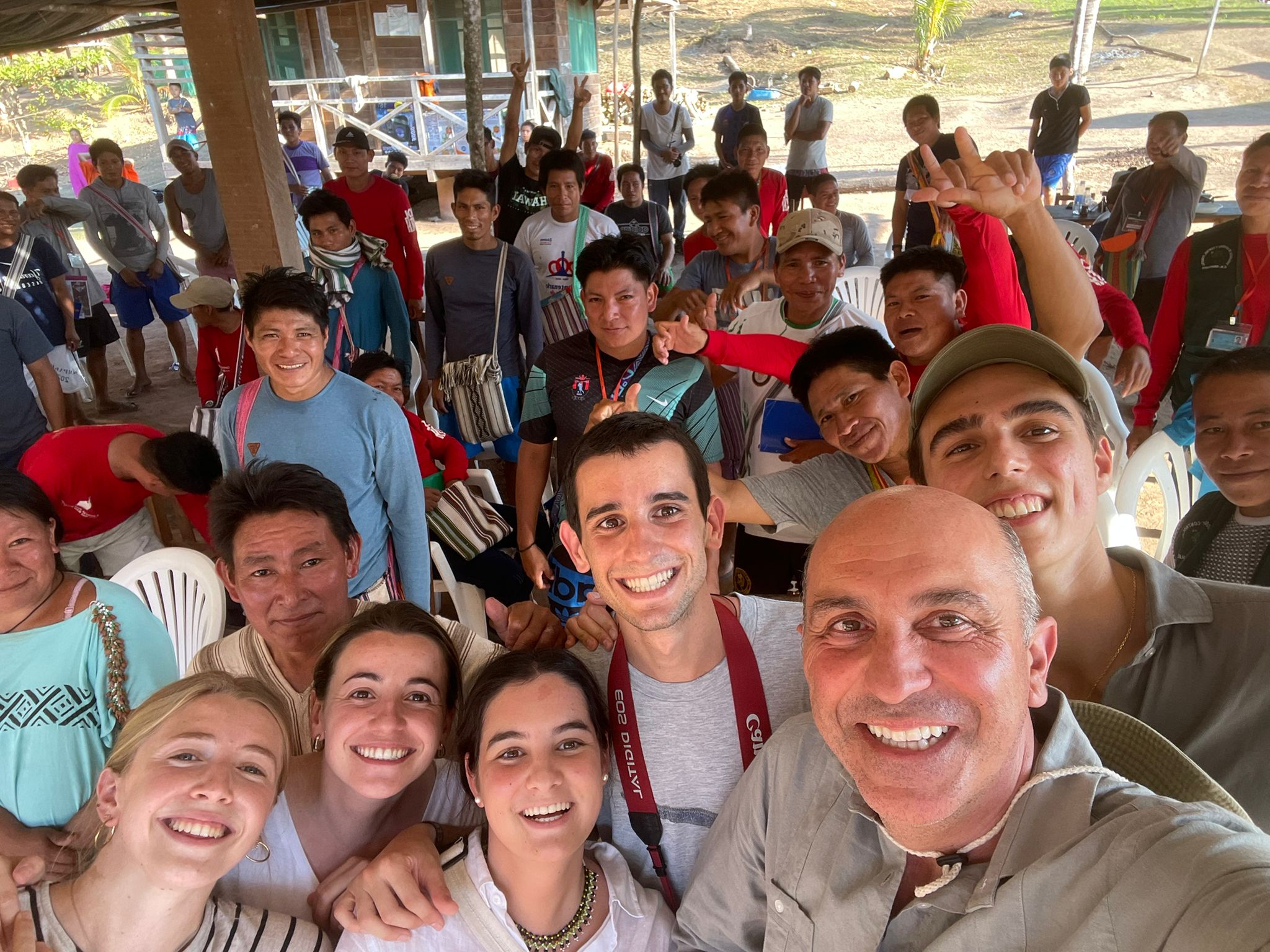
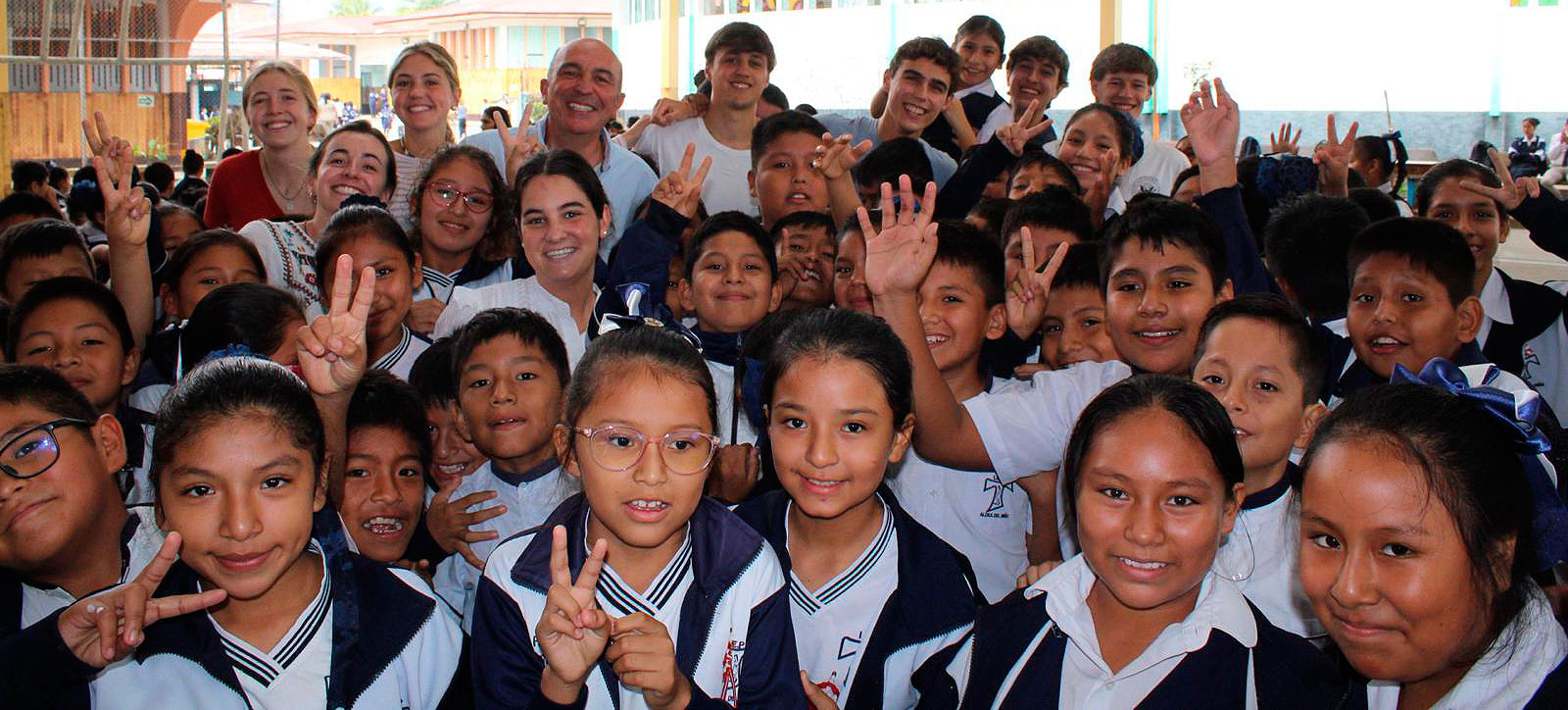
"It has been a challenge for us to adapt to them. First, because they had very little training and we had to explain everything from the basics; and then, because of the language: sometimes they didn't understand us, and we had a person who helped us with the translation into Ashaninka, their native language ", says Inés Encío, a 3rd year student of Bilingual ADE. "We had to explain to them why cocoa prices change so much from one day to the next. We used posters and a world map to show them how countries interact with each other and what factors can affect those prices. They only know Peru: they have never been outside their communities. It seemed incredible to them, for example, that prices in Switzerland could affect the price of cocoa in Peru," he adds.
In addition, they worked at high school Aldea del Niño, in Mazamari, a school dedicated to the Education of indigenous children from 6 to 17 years old. training There they taught mathematics and language, and also gave sessions of basic ethics and anthropology, about the dignity of the human being, equality between men and women, respect in personal relationships, care for life and the environment... "We would get up early in the morning and start giving class after breakfast. In the afternoon we spent time with the children, especially playing with them," explains Javier Estrada, student in 4th year of Pharmacy. "The dedication of the children and their enthusiasm was truly inspiring, and it helped us not only to teach but also to learn from them," concludes Jaime Rodríguez, a student of Bilingual ADE student with a specialization in Data Analytics..
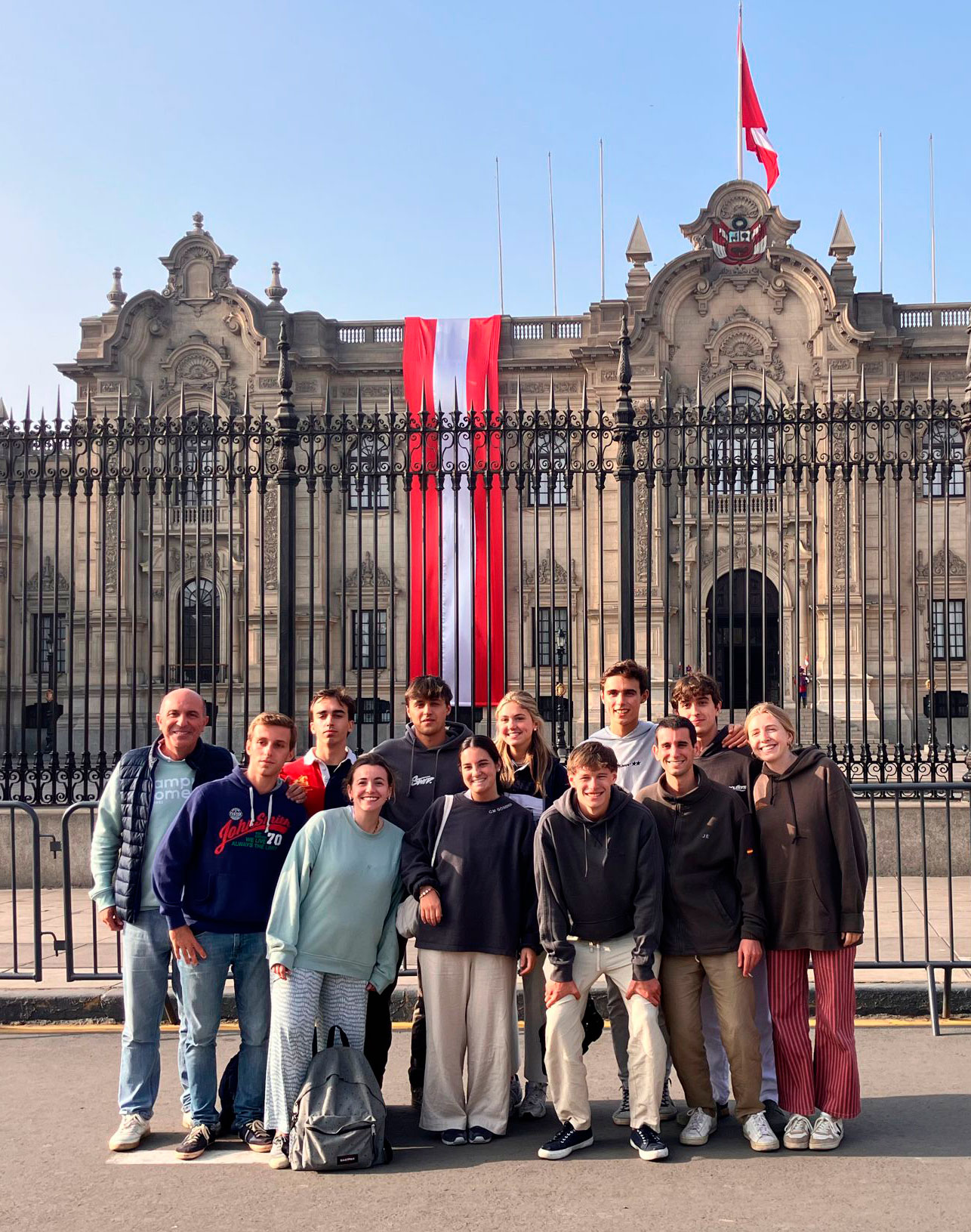
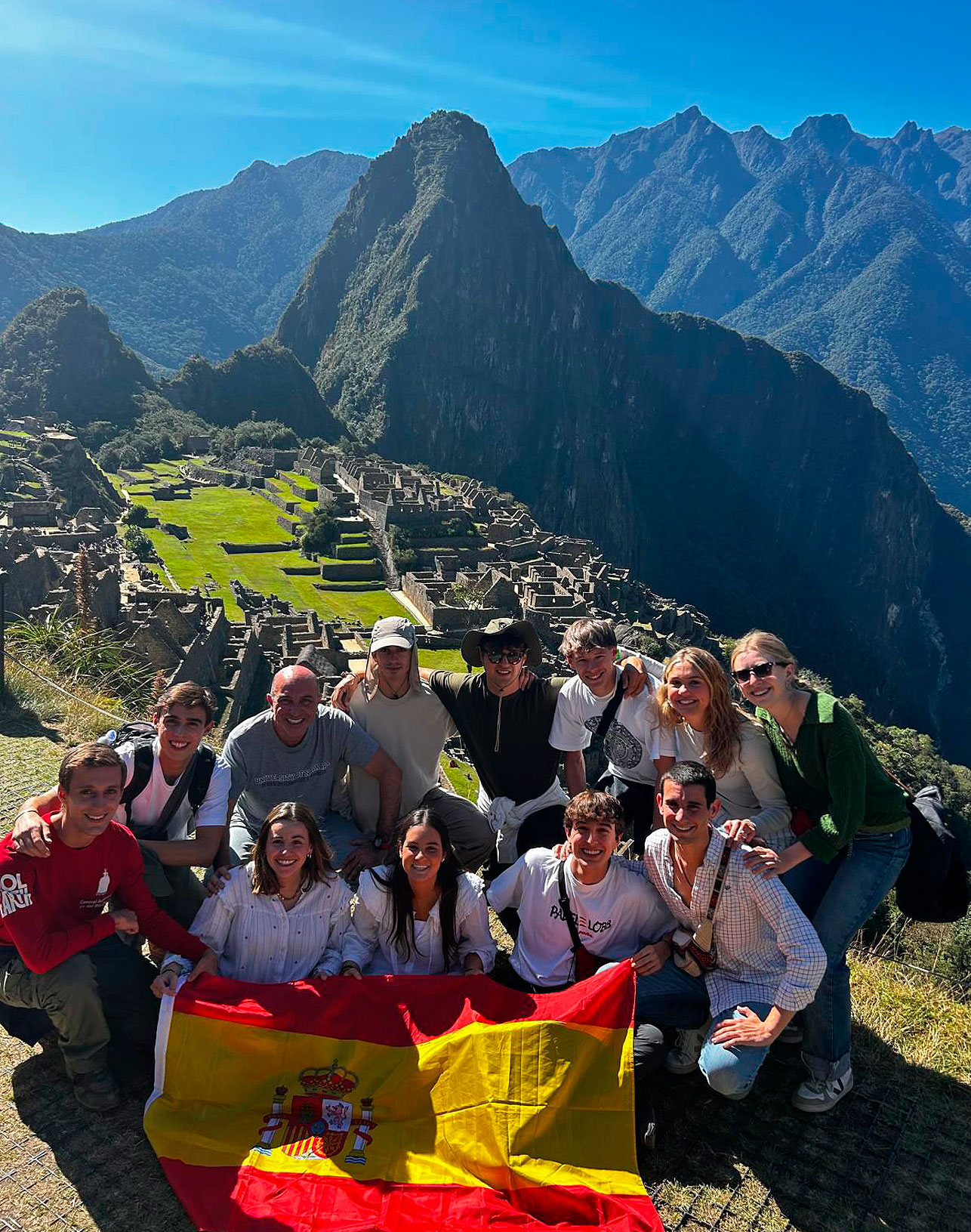
Engineering for housing rehabilitation in El Salvador
Developing a "professional" project of volunteer activities was also the goal of a group of students from the School of Engineering - Tecnun when they set up Be To Care El Salvador Zaintzeko Izan. With it, six students traveled to El Salvador from June 28 to July 18, to carry out, together with local quantity surveyors, the rehabilitation of a house in the municipality of San Martin.
But the project was much more than the action on the ground: during the entire 23-24 academic year, a total of 21 students from different Degrees of the School of Engineering collaborated in the project, carrying out dissemination activities, fundraising and logistical tasks. The goal: that the students put on internship their knowledge of management of business, materials, construction, design...
"It was a spectacular experience. We left early, after breakfast, because it took an hour by car to get there. Once there, we quickly got down to work with the financial aid team of experienced people guiding us. They explained to us how to advance and then we took the reins of the project. Every day we ate there with the family or in the surrounding area, to make the most of the time", explains Ana Simán, one of the students who traveled to San Salvador.
"We were able to experience poverty up close. It is a very different reality from that of Spain," says Ana. "At staff, I was very impressed by the fact that, despite the fact that there is a lot of material poverty, there are very happy people. We were also very impressed by the generosity and welcome of the Salvadorans. Everyone we met welcomed us in a very affectionate way," she adds.
In addition to the rehabilitation work , the students were also able to visit the facilities of the two headquarters of the Siramá Foundation, where they worked in administrative tasks and training to women. They were also able to visit the solidarity project "Familias Ayudando a Familias", which collaborates with a community of 39 families in Apaneca, the municipality located at the highest altitude in El Salvador, in the mountains. "The partnership with them has helped us to identify more homes in absolute poverty and give continuity to our project", says Ana. "We are excited to continue helping in the little we can in the coming years," she concludes.
